Physics and Astronomy
Welcome to the Department of Physics and Astronomy at BGSU! Here we explore how the universe works – from the vastness of the cosmos to the nature of subatomic particles. We do that by studying the properties of matter and energy and the laws that govern them. It’s not surprising, then, that physics and astronomy have helped us to understand our place in space-time and led the way to new technologies. With society’s ever-increasing pace, the need for discovery accelerates the demand for trained physicists. Physicists and astronomers are exceptional problem solvers with skills that are in high demand in a wide range of scientific and engineering careers in industry, academia, and government.
Students actively participate with our faculty on cutting-edge scientific research in the fields of astrophysics, materials science, nano-science, solid-state physics, and computational physics. In addition, our Planetarium and Observatory offer opportunities for astronomy research, education, and community engagement activities. These experiences are crucial for developing the credentials that graduate programs and employers seek.
Events
For information on BGSU Planetarium shows open to the public, including dates, times, and titles please follow the link above. Planetarium Director Dr. Kate Dellenbusch is developing a set of Summer shows, followed by rooftop observing at the BGSU Observatory (weather permitting).
The Department of Physics and Astronomy is hiring a new faculty member to enhance the teaching and research opportunities in Astronomy and Astrophysics at BGSU. We are searching internationally to find the best possible candidate, who will begin work at BGSU in August 2024.
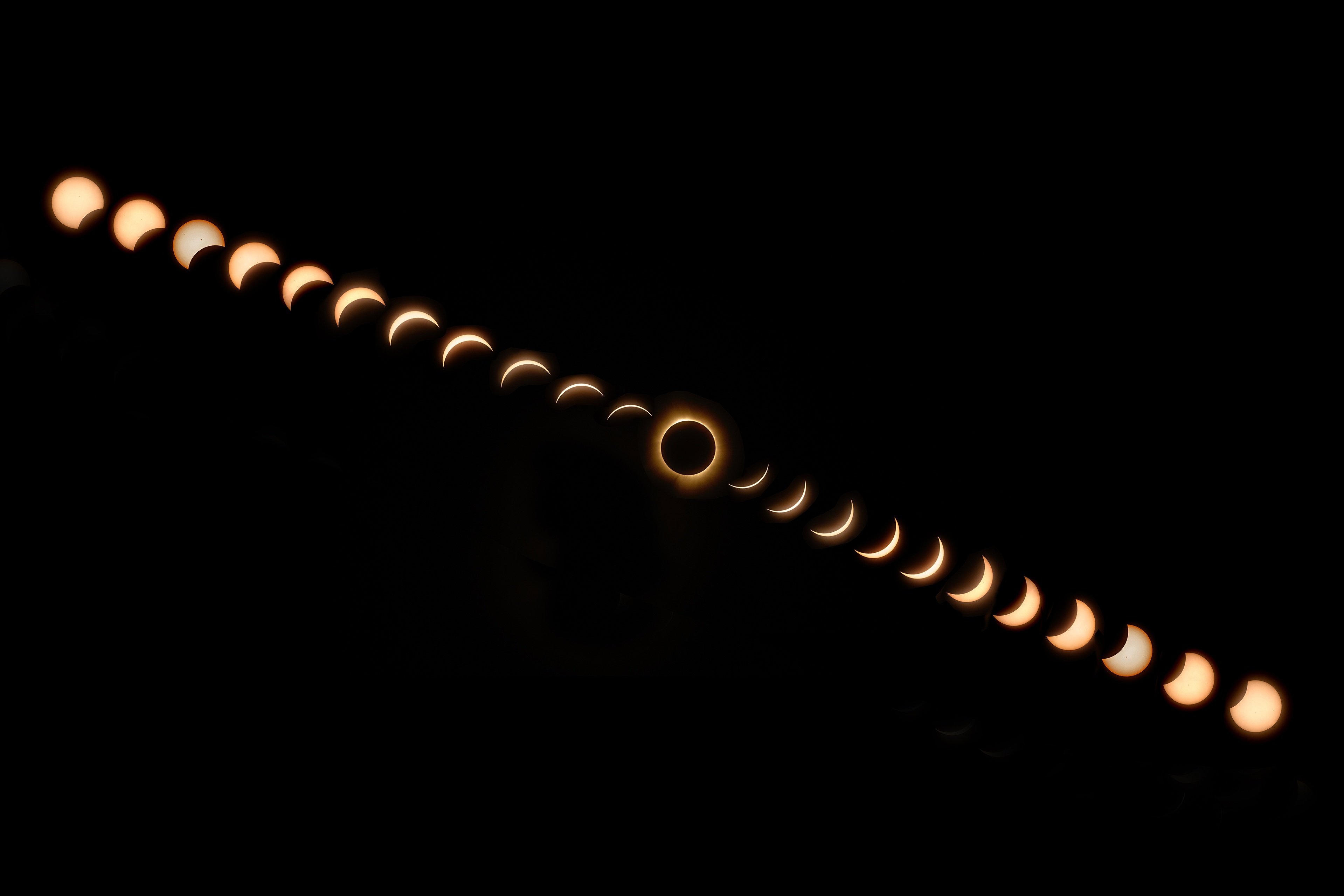 Photo: Craig Bell, BGSU
Photo: Craig Bell, BGSU
Wow! Did you see the total solar eclipse in BG on April 8, 2024? We hosted a watch party at the Doyt Perry stadium that drew 5-10,000 people including BGSU students, faculty, staff, and visitors from near and far! You can see news articles, photos, and other artifacts at our Eclipse Memories webpage. In the weeks before the eclipse, we also hosted a series of evening talks with wide-ranging topics relating to science, history, music, art, and literature; recordings are available on BGSU's YouTube channel. More links and information remain available at the BGSU Eclipse webpage and/or the BGSU Firelands Eclipse webpage.
Is Physics for you?
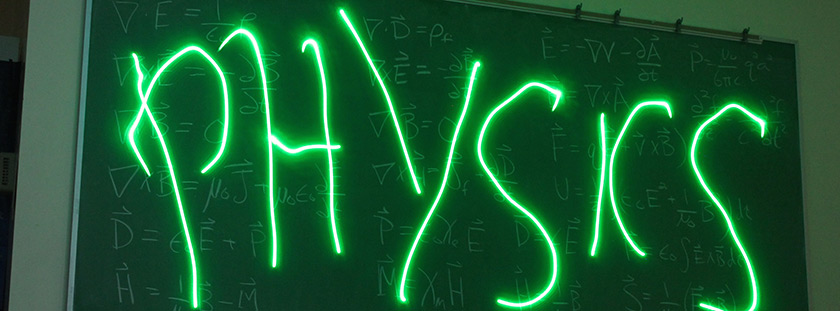
What can you do with a physics degree?
A degree in physics opens the door to a wide array of exciting and challenging careers.
News and Stories
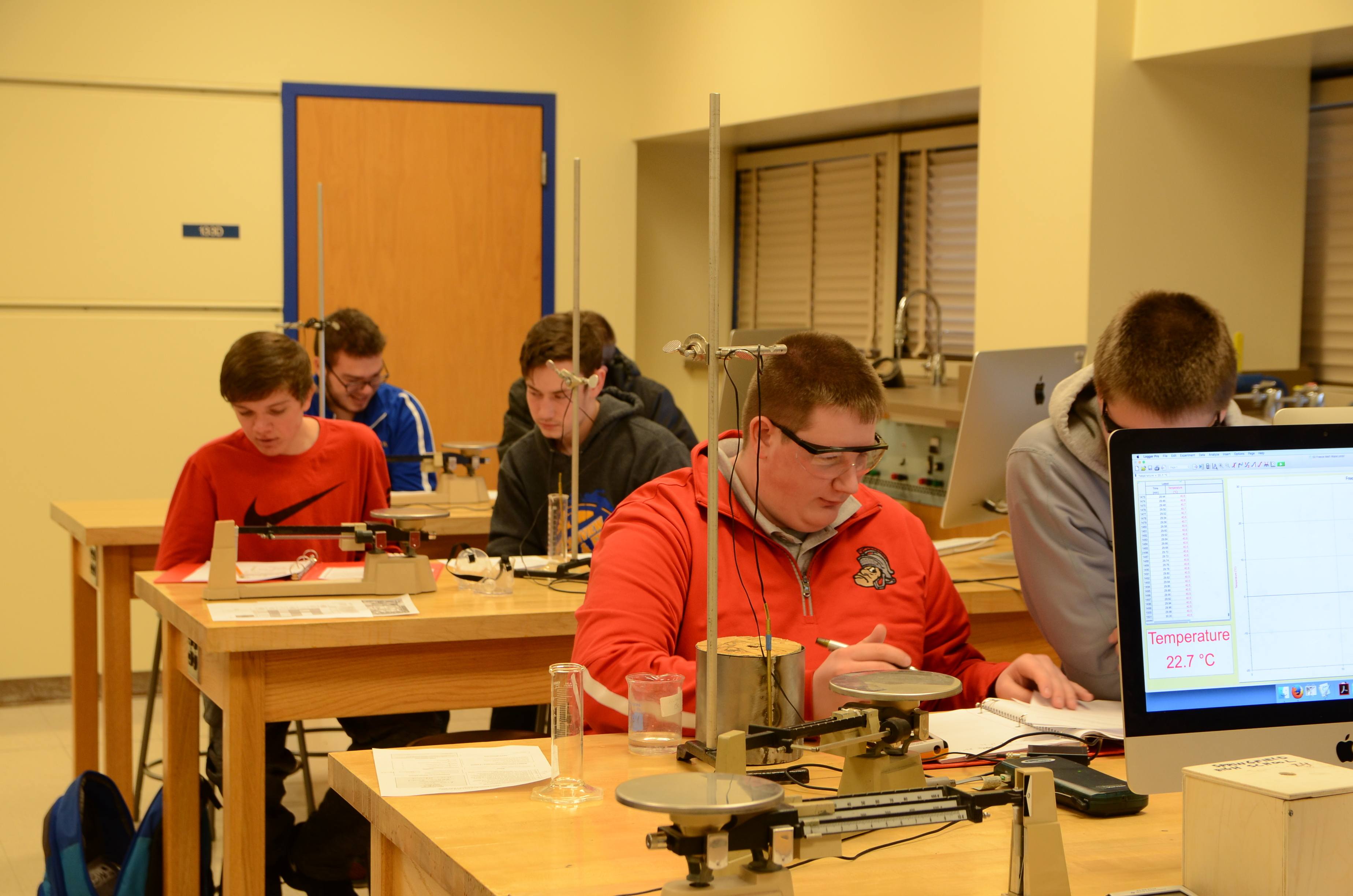
Physics Majors on the Go
Barbra Kayira, a first-year graduate student, worked in Dr. Zamkov’s lab this summer after obtaining her BS in Physics. Her summer research involved analyzing the florescence, linewidth, and quantum yield of quantum dots made through multilayer structures. She is now continuing that work in her graduate studies. Her biggest challenge is conceptually understanding the behavior of nanoparticles in a physics context. However, she enjoys visibly seeing the nanoparticles fluoresce, which helps her connect what she is learning back to quantum mechanics. Barbra plans to pursue a career in industry after completing her work here at BGSU.
Patrick Knowles, a senior Physics undergrad, had the unique opportunity to finish his physics undergrad in Saltzburg, Austria this past spring. He took Solid State physics, which unlike here at BGSU, concluded with an oral exam. Patrick learned a lot about the region he was in and talked to people from all over the world. He was able to bike around the area, and he took cruises to Spain and Morocco. He also spent time diving into his family history. He now plans to pursue a PhD in applied physics or computational solid-state physics.
Madie Martin, a senior Physics undergrad, worked in Dr. Selim’s lab this summer. Her work revolved around perfecting the operation of the BGSU Positron Beamline and using Positron Annihilation Spectroscopy to characterize defects in thin film gallium oxide samples. Her research has applications in high-powered devices because gallium oxide has outstanding material properties, making it a promising candidate for the next generation of semiconductors. She is continuing her research into this fall semester, and enjoys the hands-on work with the positron beam. She plans to earn her BS in Physics in Spring 2024.
Hannah Means, a senior Physics undergrad, completed an internship in Washington, D.C. with Physics Today. She learned how to write and edit for the magazine, and published four pieces during her time there. Two of the pieces appeared in the print version of the magazine, and two online (Physics Olympiad and a peculiar comet). She loved the fast-paced environment and interviewing people from all over the world. She hopes to keep practicing editing and strengthening her overall skills as a writer, and plans on pursuing science journalism after earning her BS in Physics in Spring 2024.
--HHM



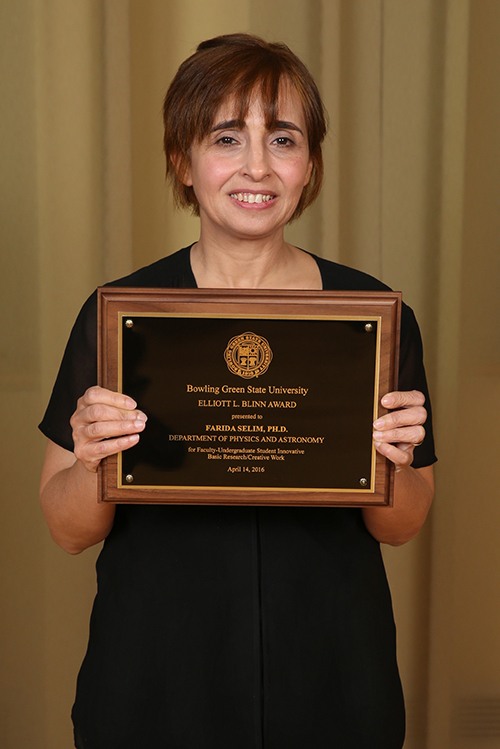
Dr. Farida Selim
We are both saddened and joyful that Dr. Selim has resigned from the BGSU Physics department in order to take on a new challenge in the School for Engineering of Matter, Transport and Energy at Arizona State Univeristy. We will watch her profile to see her new projects and discoveries in her new role. Best of luck, Farida!
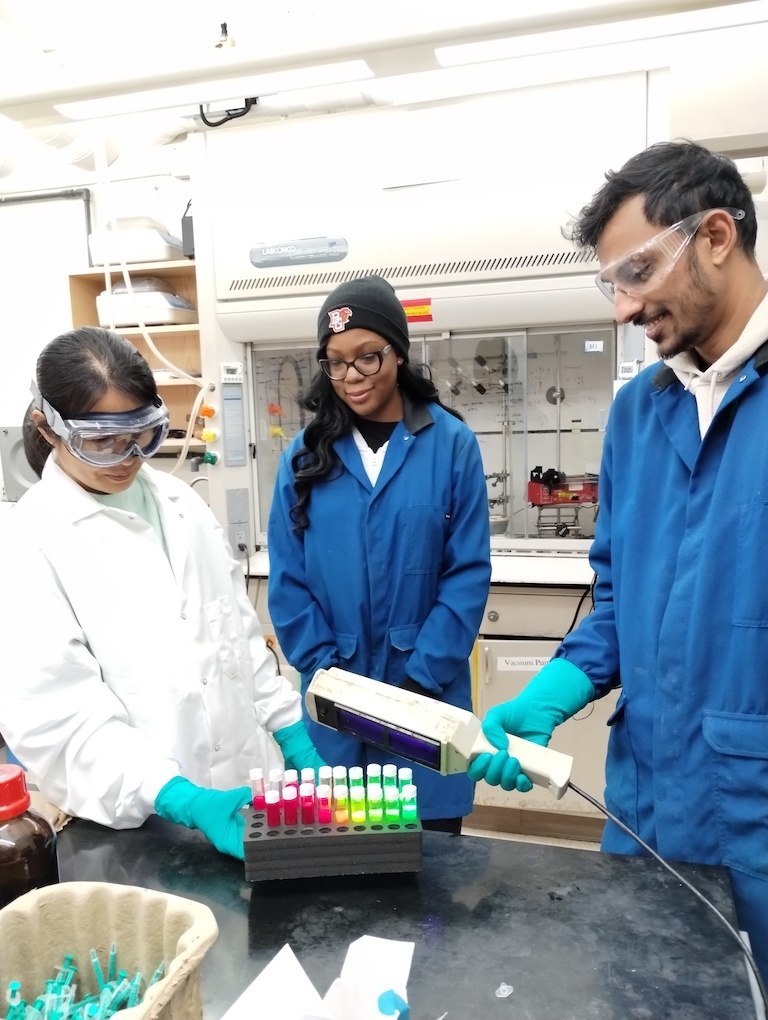
Diving into Dots
Dr. Zamkov's research group studies semiconductor nanomaterials, also known as quantum dots. The discovery and development of quantum dots won three scientists the Nobel Prize in Chemistry in 2023. BGSU’s students are helping progress this research, which has many important applications, from high color purity LED TVs to the advancement of biomedical technology. The work done in Dr. Zamkov’s lab has led to collaborations with the Los Alamos National Laboratory, Argonne National Laboratory, and more.
Graduate students Dulanjan Harnkahage, Jiamin Huang, and Barbra Kayira spend their days in the lab synthesizing nanomaterials and characterizing them with multiple techniques. They also have opportunities to work with laser spectroscopy in their research. This means they are usually working on a few different projects at a time throughout the day. Occasionally, they break away from the lab to attend a national conference on nanomaterials.
The students emphasize that the research done in Dr. Zamkov’s lab is great for careers in both academia and industry. They mention an important aspect of being involved in a new and innovative field is being able to handle failure, which happens all the time. They say to choose research that you are passionate about and allows you to learn from hardships. Trying out different research areas in the Physics and Astronomy department can help hone in your interests and help you decide if quantum dot research is the right fit for you.
-HHM
Who is "-HHM"?
Hello! My name is Hannah Means, and I am a fourth-year Physics and Astronomy student. I am the President of SPS, Head Stargazer, and science writer (in training!) here at BGSU.
Learning Outcomes
Upon completion of the baccalaureate degree, students in Physics are expected to be able to:
- Demonstrate thorough conceptual understanding of the basic field of physics;
- Describe and manipulate fundamental physical constructs and solve problems with mathematics and computational methods;
- Use basic experimental apparatus common to the study of physical phenomena;
- Communicate scientific ideas effectively, both orally and in writing.
Accreditation and/or Program/Cluster Review
Bowling Green State University [BGSU] is accredited by the Higher Learning Commission. BGSU has been accredited by the Higher Learning Commission since 01/01/1916. The most recent reaffirmation of accreditation was received in 2012 - 2013. Questions should be directed to the Office of Institutional Effectiveness.
The Physics program will undergo Program/Cluster Review during the Academic Year 2019-20.
Updated: 05/08/2024 04:47PM
